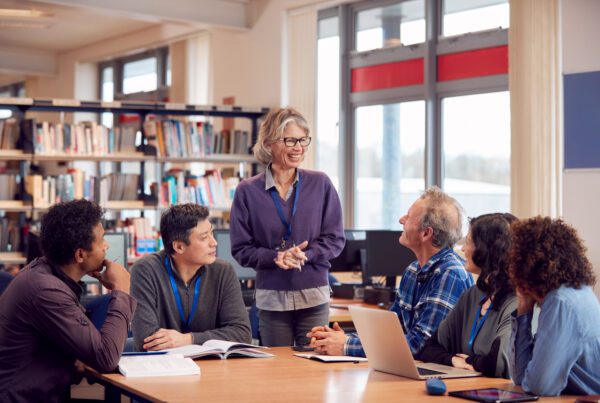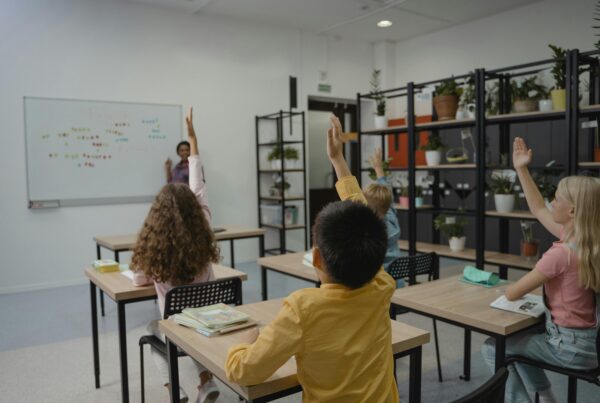Reflective practice stands as a cornerstone in the professional development toolkit of educators, offering a multitude of benefits that transcend the confines of the classroom.
It serves as a transformative tool for educators, enabling them to enhance their teaching effectiveness, personalise instruction, foster collaboration, and promote lifelong learning within the dynamic landscape of education.
Through critical self-examination of teaching methods, strategies, and interactions with students, educators gain invaluable insights, paving the way for continuous improvement and collective growth within professional learning communities.
In the following article, we’ll take a deep dive into each aspect of reflective practice and what it entails for educators.
Defining reflective practice in education
Reflective practice is a multifaceted approach that goes beyond simply recalling past experiences.
Critical Examination
Reflective practice requires teachers to engage in critical thinking about their teaching methods, strategies, and interactions with students.
This involves asking probing question, challenging assumptions, and evaluating the effectiveness of different approaches.
By critically examining their practices, educators can uncover underlying issues, identify areas for improvement, and make informed decisions about their teaching.
Deliberate and Systematic Process
Reflective practice is not haphazard or sporadic; it’s a deliberate and systematics process that requires intentionality and consistency.
Teachers set aside dedicated time to reflect on their teaching experience, either individually or collaboratively with colleagues.
This process involves structured activities such as journaling, self-assessment tools, classroom observations, or guided reflection prompts.
By following a systematic approach, educators can ensure that their reflections are purposeful and constructive.
Insights and Reflections
Through reflective practice, educators gain valuable insights into their teaching practice and its impact on student learning.
These areas may include recognising patterns in student behaviour, identifying areas of strength or weakness in instructional delivery, or discovering new strategies to engage learners.
Reflections are not limited to surface-level observations but delve deeper into the underlying reasons behind certain outcomes, decisions, or challenges encountered in the classroom.
Refining Approaches
One of the primary goals of reflective practice is to refine teaching approaches based on insights gained through reflection.
This may involve making adjustments to instructional strategies, lesson plans, classroom management systems and techniques, or assessment methods.
By iteratively refining their approaches, educators can optimise the learning experience for their students and address evolving educational needs effectively.
Professional Growth
Reflective practice is a catalyst for professional growth and development.
By engaging in ongoing reflection, educators continuously expand their knowledge, skills and expertise.
This growth mindset fosters a commitment to lifelong learning and a willingness to adapt to changing educational landscapes.
Reflective teachers actively seek out opportunities for professional development, whether through formal training programs, workshops, conference s or informal learning networks.
Reflective practice as a tool for educators
Reflective practice serves as a transformative tool for educators, enabling them to enhance their teaching effectiveness, personalise instruction, foster collaboration, and promote lifelong learning within the dynamic landscape of education.
Self-Awareness and Growth
Reflective practice encourages teachers to take a step back and reflect on their teaching practices, pedagogical choices, and classroom dynamics.
By analysing their experiences, educators can gain a deeper understanding of their strengths, weaknesses, and areas for improvement.
This self-awareness is crucial for personal and professional growth.
Through reflection, teachers can identify their blind spots, challenge assumptions, and develop a more nuanced understanding of their teaching style.
Enhancing Teaching Effectiveness
Effective teaching is not just about delivering content; it’s about engaging students, fostering critical thinking, and nurturing a positive learning environment.
Reflective practice empowers teachers to evaluate the effectiveness of their instructional strategies and make adjustments to evaluate the effectiveness of their instructional strategies and make adjustments accordingly.
By reflecting on student feedback, classroom observations, and assessment data, educators can refine their teaching methods to better meet the needs of their students.
Whether it’s experimenting with new teaching techniques or adapting lesson plans, reflective practice enables teachers to continuously improve their teaching effectiveness.
Tailoring Instruction to Student Needs
Every student is unique, with individual learning styles, preferences, and abilities. Reflective practice allows teachers to personalise their instruction and tailor it to the diverse needs of their students.
By reflecting on student performance and engagement, educators can identify areas where students may be struggling and adjust their teaching strategies accordingly.
Whether it’s providing additional support, scaffolding learning tasks, or incorporating differentiated instructions, reflective teachers can better meet the needs of all learning in their classrooms.
Building a Culture of Collaboration
Reflective practice is not just an individual endeavour; it can also foster a culture of collaborating and professional learning communities with schools.
By engaging in reflective discussions with colleagues, sharing experiences, and exchanging ideas, teachers can learn from each other and collectively enhance their teaching practice.
Collaborative reflection allows education to gain fresh perspectives, brainstorm solutions to common challenges, and support each other in their professional development journey.
Through collaboration, teachers, can harness the collective wisdom of their peers and elevate the quality of teaching across the school community.
Promoting Lifelong Learning
In the field of education, learning never stops.
Reflective practice cultivates a mindset of lifelong learning, where teachers are continuously seeking to improve and grow professionally.
By embracing reflection as a habit, educators demonstrate a commitment to their profession and a willingness to adapt to changing circumstances.
Whether it’s attending professional development workshops, pursuing advanced degrees, or participating in online courses, reflective teachers are proactive in seeking out opportunities for growth and development.
Learn more about how our online learning program works.
Becoming a Better Educator Everyday with EC Premium
Reflective practice is a powerful tool for K-12 teachers seeking to enhance their teaching skills and professional development.
By fostering self-awareness, enhancing teaching effectiveness, tailoring instruction to student needs, building a culture of collaboration, and promoting lifelong learning, reflective practice empowers educators to navigate the complexities of the classroom with confidence and efficacy.
As teachers engage in reflective practice, they not only improve their own practice but also contribute to the overall success and wellbeing of their students.
Embracing reflection as a cornerstone of professional development is key to unlocking the full potential of educators and creating enriching learning experiences for all students.
For further questions about our professional learning programs, get in touch with us.




